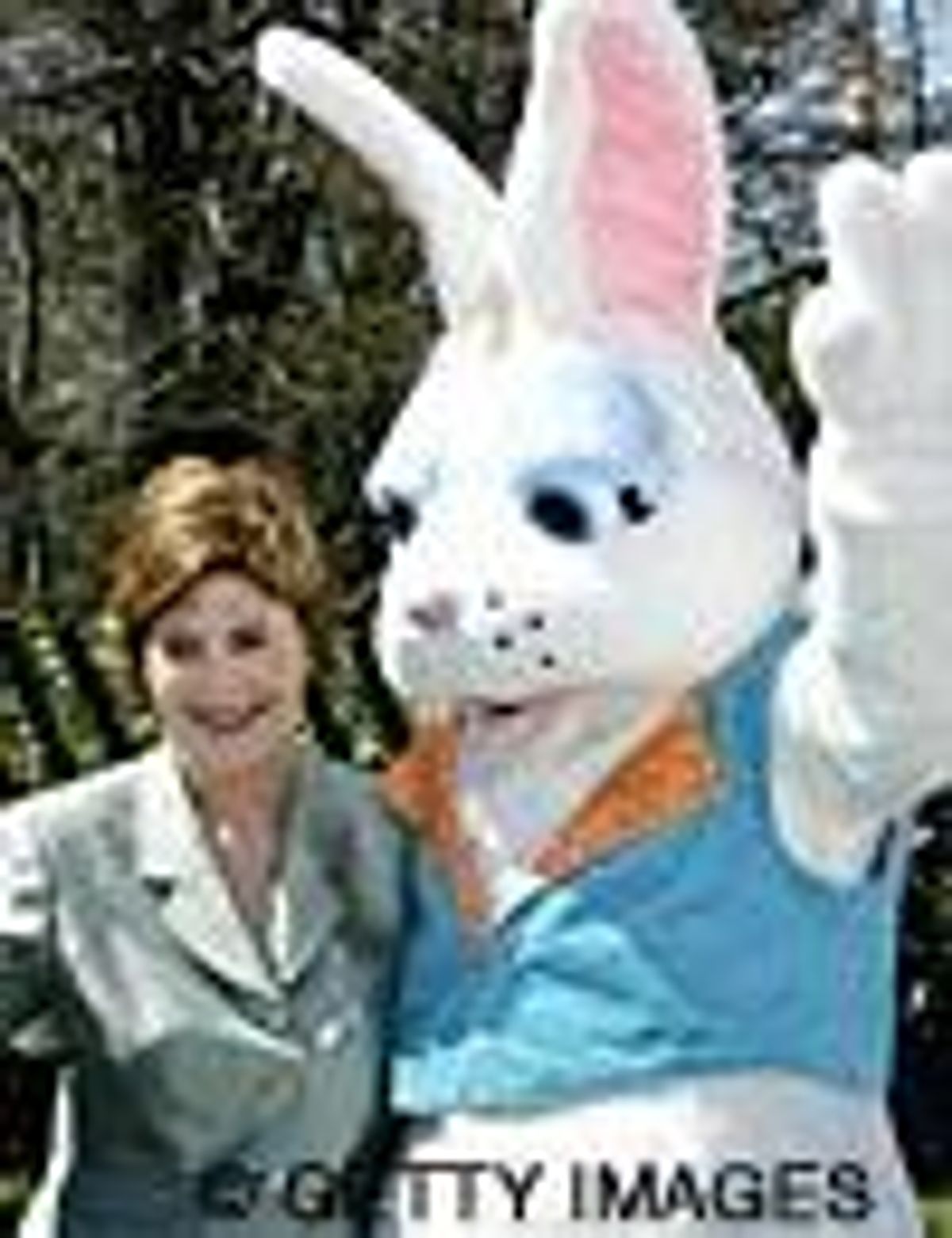In mid January
the Associated Press published a report on the controversy
brewing between America's religious right and
families headed by gay parents. The issue? Whose
children should be allowed to participate in the White
House's annual Easter Egg Roll in April.
The Family Pride
Coalition, a national advocacy group for LGBT parents
and their families, invited such families to attend, and
numerous religious fundamentalist groups sprang into
action. Even the White House weighed in.
"Will the
president take any measures to prevent these activists from
using this nonpolitical event as a way to push their agenda
on the rest of us?" asked a pool reporter for
WorldNetDaily.com at a White House press conference.
The response by White House spokesman Scott McClellan
included, "We'll talk about it as we get
closer. I've seen a couple of reports about it;
I don't know how extensive that reporting has been.
But this has been a family event for a long time and
the president always looks forward to this
event."
Spearheading the
rhetoric from the Right are the Family Research Council
and the Institute on Religion and Democracy, two religious
think tanks. The latter considers the organizing of
gay-led families as an effort to
"exploit" the Easter Egg Roll "for
political purposes." However, the Family Pride
Coalition calls the gathering an opportunity for Americans
"to see us as real families, participating in a great
American tradition."
No doubt, the
issue is political. But then, gay parents and their
children simply going out in public as a family on any day
might be considered political in today's
environment of cultural warfare over
"values."
Whether
manifested as legislative bills seeking to outlaw same-sex
marriage, summer camps aimed at "curing"
homosexuality, or letter-writing campaigns that rally
to rid the airwaves of positive portrayals of gays,
the religious fundamentalists' efforts to define
American morality are in full swing.
In reality,
families come in every different shape and size. The
traditional nuclear family is in the minority in the United
States. Some kids are raised by primarily one parent;
others have complex configurations of multiple
stepparents. Many gay people are choosing to start
their own families by raising children, resulting in what
has been called a "gayby boom." As their
children grow up, people who do not have experiences
seeing such family configurations will have a choice: Expand
their definition of family, or insist that these parents and
children simply do not qualify.
But opinions of
gay and lesbian-led families are changing quickly, as
more and more gay people come out to their friends and
families. According to a 2001 poll by the Kaiser
Family Foundation, 73% of the general population in
the U.S. knows a gay man or a lesbian. The same poll
reports that approximately three quarters of the general
public support laws that protect gays and lesbians
from prejudice and discrimination in employment and
housing. They also overwhelmingly support inheritance,
health insurance, and Social Security benefits for gay
partners.
Compared to these
necessities, the Easter Egg Roll is
insignificant--nonetheless, it is still an American
tradition, presided over by presidential
administrations since 1878. Rutherford B. Hayes was
the first president to invite children to spend the morning
playing Easter games on the White House lawn. First
ladies have added personal touches over the years. Lou
Hoover added maypole dances. Eleanor Roosevelt greeted
the nation via radio from the event in 1933. Pat Nixon
introduced the tradition of a White House staffer dressing
up as the Easter Bunny. It was under her watch that
spoons used in the egg roll race were borrowed from
the White House kitchen!
Since 1878 the
event has grown tremendously. With 16,000 tickets issued
last year, the White House considers it to be its largest
public celebration. It has been restricted only in
times of war and inclement weather.
Some have
suggested that our current president might cancel the Easter
event or attempt to "de-gay" it by restricting
attendance--such as to military families only,
as he did in 2003. Let's hope that he does not
politicize the event to serve this very narrow, but vocal,
faction of his political base.
I am not
surprised to see religious fundamentalist organizations
shift into overdrive by organizing to exclude gay
families from the event. If, however, the White House
joins them in their effort, it will show just how
embedded these interests are in the current administration.
Often called "the people's
house," the White House is the ultimate symbol of
our government's ideals, the legacy of
Americans' struggle for independence and
liberty. If gay families are not equally welcome there,
the ominous message will resonate far beyond just us.

















































































